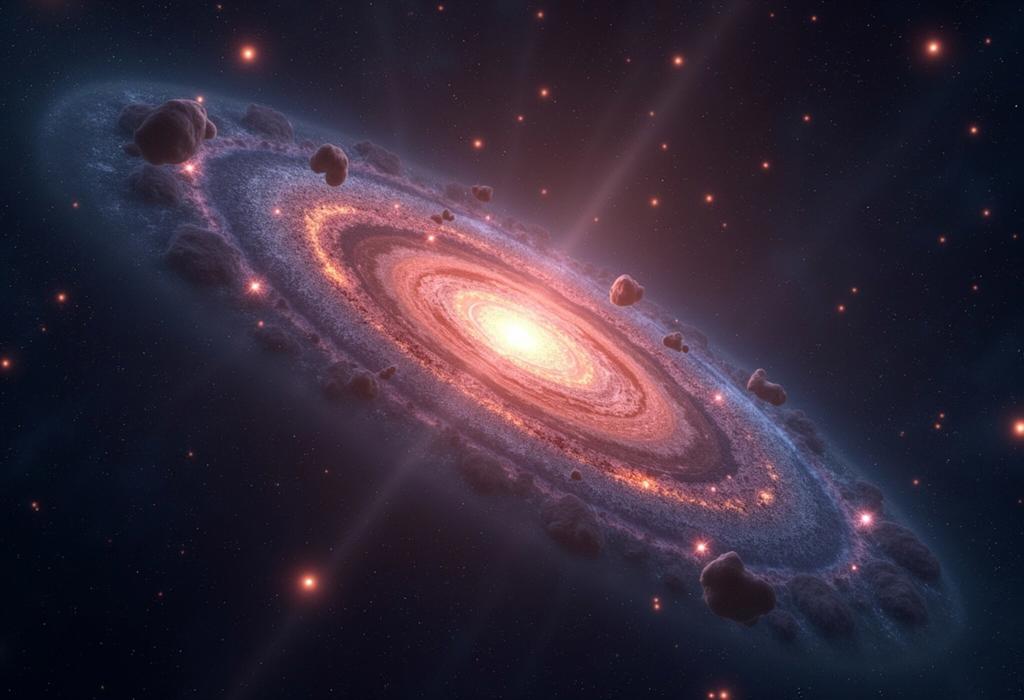Dark energy, a mysterious force thought to comprise 70% of the universe and drive its accelerating expansion, may not be the constant presence it was once believed to be. Recent observations from the Dark Energy Spectroscopic Instrument (DESI) suggest that dark energy has changed over time. This revelation could challenge the Lambda Cold Dark Matter (Lambda-CDM) model of cosmology, which posits dark energy as a fixed cosmological constant. DESI's latest data, collected from over 15 million galaxies, indicate that the expansion of the universe began to accelerate earlier than previously thought, peaked, and is now slowing down. Such findings are awaiting peer review but hint at a revolutionary shift in our understanding of the cosmos. The concept of a cosmological constant was initially proposed by Einstein and later revived in the 1990s with the discovery of dark energy. The new data suggests a discrepancy of 4.2 sigma from the Lambda-CDM model, meaning there's a small chance that the current model is correct, though not yet enough to be declared a discovery. If dark energy is indeed dynamic, it could alter our predictions about the universe's fate, leading to scenarios where the universe might slowly stop expanding, or even collapse. The findings are considered groundbreaking and invite theoretical physics to explore further, hinting at new physics beyond Einstein's general relativity. This analysis has been reviewed by artificial intelligence.
AD
AD
AD
AD
Bias Analysis
Bias Score:
40/100
Neutral
Biased
This news has been analyzed from 13 different sources.
Bias Assessment: The reporting is largely neutral, focused on presenting findings and potential implications. However, there is a notable emphasis on the dramatic consequences 'if' the findings hold true, without sufficient caution about their tentative nature. The excitement over potential paradigm shifts and new theories adds a subtle sensationalist tone, contributing to a slight bias in favor of the groundbreaking narrative. Additionally, the description of dark energy as 'weirder than first thought' could influence reader perception, suggesting a bias towards framing the results as revolutionary rather than incremental.
Key Questions About This Article




